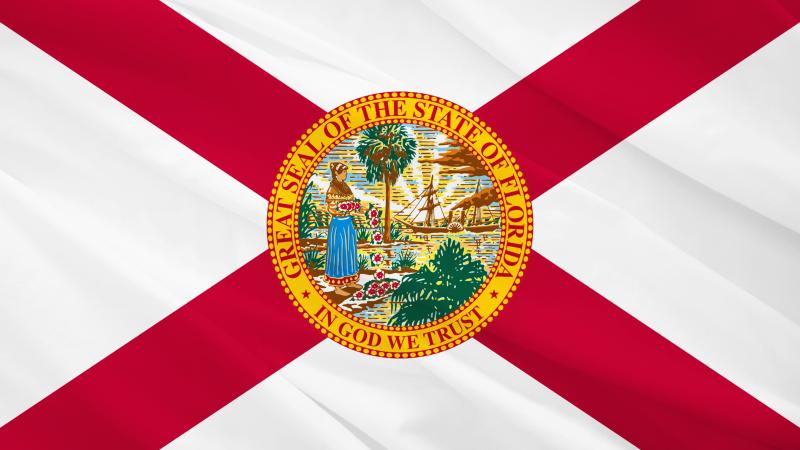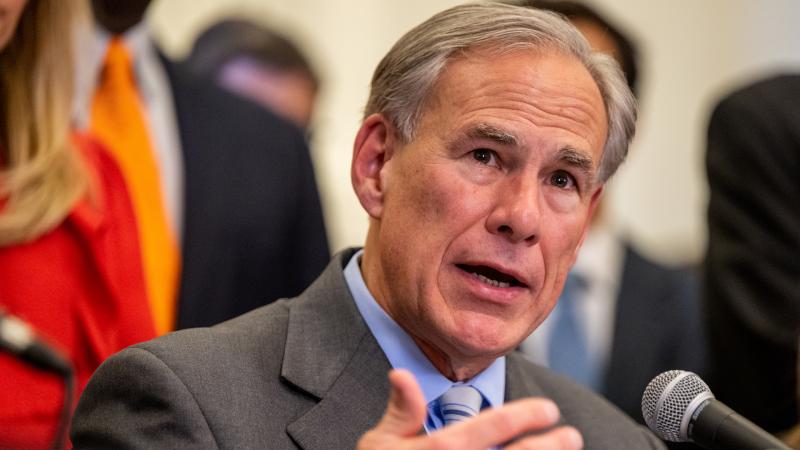Voters worry most about economy, and next admin’s energy policy will make the difference: experts
Some analysts have argued that a big reason why the U.S. didn't enter a recession under the Biden administration is the enormous amounts of oil and gas the U.S. has been producing.
Whatever the outcome of Tuesday’s election, the voters’ decision will shape energy policy for the next few years. A Gallup poll released in October found that the economy is the most pressing issue influencing who they’ll vote for Tuesday, whereas climate change came in second last before transgender issues. Other polls asking voters about the economy and climate change have found similar results.
While these polls didn’t ask about energy policies, energy is an input in every product and service. If energy costs go up, so do the costs of everything. In 2022, fears of a recession loomed large in headlines, and that recession didn’t materialize in the years since. Some analysts have argued that a big reason why is the enormous amounts of oil and gas the U.S. has been producing.
“What nearly all market observers get wrong is the nature of the relationship between energy and the economy. Most view energy as an input into economic activity, as though its contribution to gross domestic product (GDP) is no different than the other measurable goods and services that go into that important calculation …. Energy is not an input into the economy, it is the economy,” writes Doomberg, a group of analysts who publish their work on Substack.
What the winner of the election does with energy in the next four years could have an outsized impact on the economy than many other policy areas.
Positions and promises
It’s been difficult to pin down exactly where Democratic candidate Kamala Harris stands on energy. Energy was only briefly mentioned in the September presidential debate. Harris assured voters she would not ban fracking and would support “diverse sources of energy” to reduce our dependence on foreign oil. She further touted her tie-breaking vote on the Inflation Reduction Act. Her campaign platform also brags that under the Biden-Harris administration the U.S. produced more energy than any other nation, which resulted in the lowest prices at the pump in three years.
While Harris has presented herself as a moderate on energy, her critics point out that she’s received extensive support from anti-fossil fuel activists. This, they say, suggests her pro-energy rhetoric is a means to win the election. Once the White House is secured, they claim, she will pursue a course on energy policy that has resulted, along with fellow Democrats, extensive regulations making it more expensive to produce oil and gas. Some of her critics have argued she will be more radical on energy than her predecessor.
Harris’ running mate, Minnesota Gov. Tim Walz, pursued a strong “green energy” agenda in his state, and critics have argued he was trying to compete with California’s climate agenda. As a result, they say, residents and industries are being crushed under high electricity rates.
Trump and his running mate, Ohio Sen. JD Vance, have offered a lot more specifics of their vision for energy. Since early on in the campaign, Trump has vowed to pursue policies that will allow America to maintain and grow its energy dominance. Neither Vance nor Trump had much to say about the issue during the debates, but both of them appeared separately on the “The Joe Rogan Experience” podcast, offering up heavy criticism of the wind industry.
Trump discussed the impact that offshore wind is having on whales, claiming that it drives them “fricking crazy,” and he said “I love oil and gas.” Vance talked about the visual blight wind farms are having on the Midwest and Great Plains, and he called the industry a “scam.”
Limits to power
Should Trump succeed in the election and roll out fossil fuel-friendly policies, it could take time before they impact energy costs and production rates. During Trump’s first term, the Bureau of Land Management offered on average 6.3 million acres for oil and gas leasing on public lands every year during that four-year period. Under President Joe Biden, the BLM has offered on average 506,000 acres between 2021 and 2023. That includes 1.1 million acres that were offered before Biden was inaugurated and put a moratorium on oil and gas leasing.
Industry experts have said that the explosion of acreage offered under the Trump administration has a lot to do with the record-high production rates seen under Biden. That will then reverse no matter who is elected. The regulatory uncertainty under Biden may has also contributed to declines in offshore exploration, and with 15% of crude oil production coming from offshore drilling, we may see declines in offshore production under the next administration.
Trump has promised to claw back unspent funding from the Inflation Reduction Act. His ability to do that may be limited by the law itself. Travis Fisher, director of energy and environmental policy studies at the Cato Institute, argued last year that taxpayers will be stuck with the spending because many of its subsidies only expire when certain emission targets are met. It would, therefore, take legislative action to overturn those subsidies.
Even if Republicans maintain House control after Tuesday’s election, 18 House Republicans in August wrote to House Speaker Mike Johnson to express their opposition to cutting the IRA’s tax credits. Energy expert Robert Bryce argues that businesses are feasting on these subsidies, and influential trade associations have pledged to protect the federal largesse. This includes the American Petroleum Association and the U.S. Chamber of Commerce.
Trump will, Bryce writes, be able to end the pause on LNG export permits and terminate Biden’s offshore wind campaign. The EV mandate will also likely come to an end, but that will be driven by realities in the marketplace that are making it hard for automakers to convince consumers to buy the vehicles.
Should Harris win
A win for Harris, on the other hand, Bryce says, will give more power to those who want to advance the climate agenda, including the push to electrify everything, which will drive up energy costs.
Francis Menton, who publishes the “Manhattan Contrarian,” argues that Harris will continue an anti-fossil fuel agenda, should she win the presidential election. While it won’t be an outright ban on fracking, it will be a war on fossil fuel-fired power plants, EV mandates, restrictions on pipelines, and continuing limits on oil and gas leases on public lands. A Harris-Walz administration will also double down on the trillions in spending pursuing an energy transition under the Inflation Reduction Act.
Even though polls show climate change coming in dead last and the economy coming in first on voters’ list of concerns, climate action groups have thrown their weight behind Harris. Whether or not voters make the connection between energy policy and the economy and reject that agenda on Tuesday remains to be seen.
The Facts Inside Our Reporter's Notebook
Links
- Gallup poll released in October
- found similar results
- fears of a recession
- loomed large in headlines
- enormous amounts of oil and gas
- writes Doomberg
- difficult to pin down
- Energy was only briefly mentioned
- campaign platform
- received extensive support
- extensive regulations
- she will be more radical
- residents
- industries are being crushed
- Trump has vowed
- Bureau of Land Management offered
- moratorium on oil and gas leasing
- reverse no matter who is elected
- declines in offshore exploration
- claw back unspent funding
- argued last year
- 18 House Republicans
- argues that businesses are feasting
- American Petroleum Association and the U.S. Chamber of Commerce
- pause on LNG export permits
- offshore wind campaign
- realities in the marketplace
- drive up energy costs
- Manhattan Contrarian
- argues that Harris
- thrown their weight behind Harris












